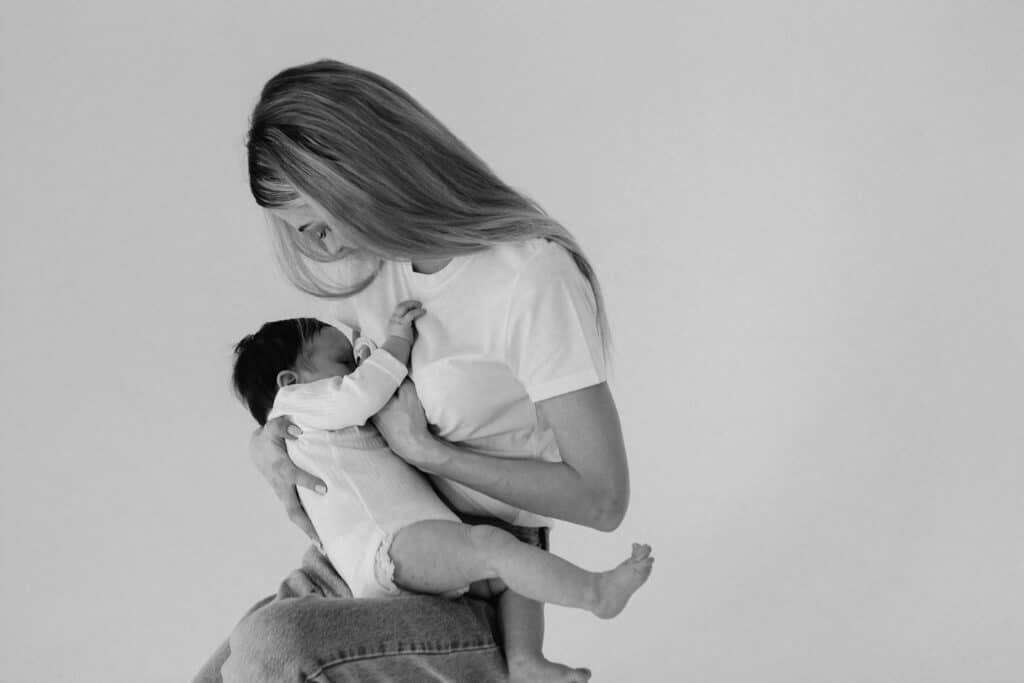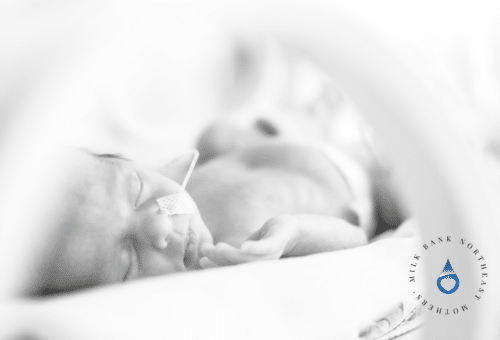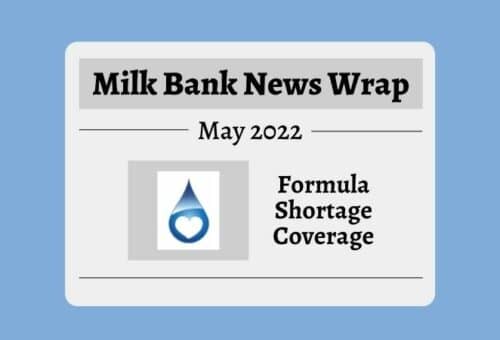
Nonprofit milk banks matter – here’s why . . .
Approximately 10% of babies in the US are born preterm, with Black and Brown babies having higher rates of prematurity than white or Asian babies. Babies born early face numerous medical risks. Studies show that when a mother’s own milk is not available, pasteurized human donor milk (PHDM) is the next best option. This fact is supported by major medical organizations including American Academy of Pediatrics (AAP), World Health Organization, and US Department of Health and Human Services.
The use of human milk, instead of formula, for preterm babies decreases the risk of them developing necrotizing enterocolitis (a potentially life-threatening infection of the gut) by about 80%. Recognition of the positive health outcomes related to donor milk has led to a shift in neonatal standards of care. Today, the vast majority of US-based neonatal intensive care units (NICUs) have PHDM available.
Nonprofit milk banks nourish, protect and save precious lives . . .
Consider Heather, a donor milk recipient, who gave birth at a major hospital in Hartford. Born at just 27 weeks, Heather was initially unable to breastfeed her son, something common with preterm births. She was grateful to have donor milk as an option for her baby. In fact, Heather was so grateful that she went on to become a milk donor herself, ensuring that other vulnerable babies will have this safe, nutritious option available to them.
Where do hospitals and individuals obtain safe donor human milk? Often from nonprofit milk banks, which are regulated by the FDA and the Human Milk Banking Association of North America. Here in Connecticut, Mothers’ Milk Bank Northeast serves 14 major hospitals throughout the state. Nonprofit milk banks work with moms who have more milk than their own babies need to grow and thrive as well as bereaved mothers. They conduct rigorous health screenings, pool milk donors for optimal nutrition, pasteurize and then distribute donor milk primarily to hospital NICUs where it can be lifesaving.
The breastfeeding bridge . . .
According to the AAP, children who are breastfed have improved neurodevelopmental outcomes and better long-term physical and dental health outcomes. Their risk of many medical conditions including SIDS, asthma, diabetes and leukemia significantly decreases. Breastfeeding also contributes to maternal health benefits including decreased risk of certain cancers, type 2 diabetes, and hypertension.
Aware of these statistics, many mothers choose to breastfeed their newborns. However, establishing breastfeeding can take days or weeks for some, and many families want to avoid infant formula feeds. Parents wanting to use donor milk as a “bridge” to breastfeeding can obtain it at some hospitals, through a nonprofit milk bank, or at a milk bank dispensary.
A question of ethics . . .
There are 27 nonprofit milk banks in the US. They focus entirely on promoting infant health with no profit motive. Milk donor moms are not paid for their generous donations, an important ethical element specific to the nonprofit sector which ensures there is no financial incentive to either limit the milk being received by a biological baby or to add anything to the milk. Nonprofit milk banks are not allowed to “recruit” donor moms. Potential milk donors must reach out to the milk bank themselves, often learning about milk banking through medical professionals or word of mouth.
The importance of donor milk as an infant nutrition option is not well known. There is much work to do to introduce donor milk to parents prenatally, so that, if offered postpartum, they are familiar with the benefits and safety standards and can make an informed decision. Also, early education about donor milk can lead to more milk donation. Moms don’t know if they are going to produce more milk than their own baby needs. But if they do find themselves with full freezers and a generous heart, knowing about nonprofit milk banks provides the opportunity to consider donating to help medically fragile babies.
We need nonprofit milk banks and they need us . . .
Nonprofit milk banks need partners to help raise awareness about milk donation and the role of donor milk in promoting child and maternal health. Philanthropic support is required to expand milk bank operations to meet the growing demand for this feeding option. With more collective understanding and commitment to infant nutritional health, we can ensure that donor milk is available to as many babies as possible who would benefit from it, prioritizing the most medically fragile first.
Deborah Youngblood, Ph.D., Executive Director, Mothers’ Milk Bank Northeast
Dr. Sarah N. Taylor, Director, Neonatal Clinical Research, Yale University School of Medicine
Today’s post originally appeared in the Hartford Courant. Penned by our very own Deborah Youngblood and Dr. Sarah N. Taylor, we knew you’d enjoy it. Want to know more about or make a financial contribution to support our work? Click here for our Impact Report and here to make a gift. Thank you.








